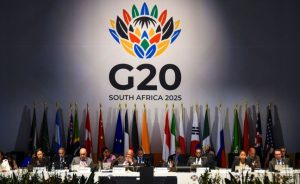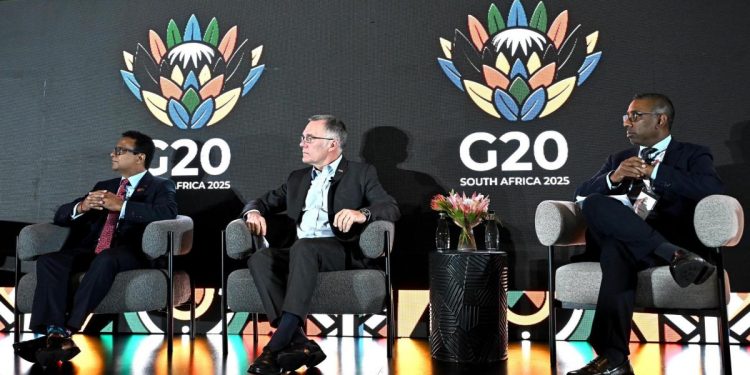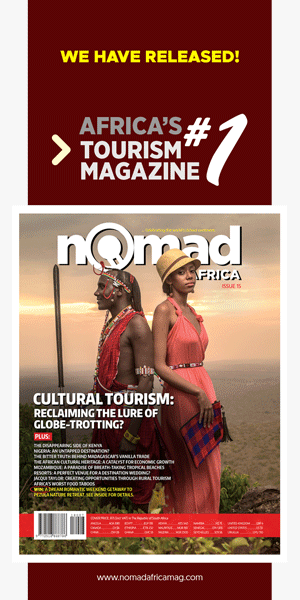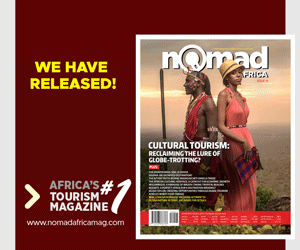South Africa’s upcoming G20 Leaders’ Summit, the first to be hosted on African soil, is fast becoming a focal point for renewed debate on how global economic governance can better reflect the priorities of the continent. With more than 40 heads of state, ministers, and international institutions expected in Johannesburg on Friday, African tourism operators, policy analysts, and regional business leaders say the moment represents more than symbolism. It is, they argue, a rare chance to influence global policy in a way that could reshape Africa’s tourism economy, unlock new investment flows, and strengthen long-term recovery across the region.
While South Africa’s government frames its G20 presidency around the pillars of “Solidarity, Equality and Sustainability,” entrepreneurs across Zimbabwe, Namibia, Mozambique, and South Africa say it will be meaningful only if leaders champion practical reforms that address structural constraints on the continent’s tourism industry.
These include weak intra-African mobility, limited aviation connectivity, insufficient digital transformation, and access-to-finance challenges that continue to suffocate small enterprises. From their vantage point in the sector, the upcoming summit must serve as a bridge between global decision-making and local realities.
South Africa’s Department of Tourism says it sees the G20 as an opportunity to elevate Africa’s tourism issues beyond continental platforms like SADC and the AU into the world’s most influential economic forum. Officials argue that global governance has traditionally undervalued the economic power of tourism, despite the sector contributing more than 8% to Africa’s GDP before the pandemic.
 Mr Nkhumeleni Victor Vele, Director-General of the South African Department of Tourism, who is part of the G20 working group, said Africa needs a new financing architecture that recognises tourism as both an economic engine and a development tool.
Mr Nkhumeleni Victor Vele, Director-General of the South African Department of Tourism, who is part of the G20 working group, said Africa needs a new financing architecture that recognises tourism as both an economic engine and a development tool.
He added that the G20 discussions on climate finance, sustainable infrastructure, and trade facilitation must translate into resources accessible to African SMMEs, describing small tourism businesses as “the lifeblood of job creation, especially for youth and women.”
The National Treasury has also emphasised the potential macroeconomic impact of hosting the summit. Officials say G20 engagement on investment, debt reform, and climate finance could ease fiscal constraints for African countries, allowing more space to fund tourism infrastructure, skills development, and digitalisation.
Economists say the timing of the summit is significant. Africa is battling slow recovery, rising borrowing costs, weakening currencies, and escalating climate shocks. Tourism, which is one of the few fast-growth sectors, is seen as a strategic lever to drive diversification and job creation. Professor Tinashe Nyamadzawo, a Harare-based economist specialising in regional trade and mobility, said the G20 offers African states “a rare chance to negotiate from a position of visibility.”
“The challenge,” he said, “is that unless Africa presents a unified tourism and mobility agenda, the continent risks walking away with general statements but no actionable reforms.”
Nyamadzawo believes the biggest win Africa can pursue is improved air connectivity. “The aviation sector is the backbone of Africa’s tourism value chain. Without lowering the cost of regional travel, Africa will continue losing billions in untapped intra-African tourism.”
Mauritius-based economist Dr. Aisha Kandiah echoed this sentiment, saying Africa needs G20 backing to unlock blended finance instruments that lower risk for infrastructure investment. She argues that the global economy has shifted toward climate and sustainability-linked finance, but African countries lack the capacity to attract this capital at scale.

“The G20 can serve as a matchmaker between global investors and African tourism-ready projects,” she said. “Without development guarantees, Africa’s tourism financing gap will keep widening.”
From Zimbabwe, strategic hospitality specialist Enock Lungu agrees that the G20 offers an opportunity to elevate Africa’s tourism issues to the world’s most powerful economies. Speaking ahead of the leaders’ summit, Lungu said the platform must be used to push for reforms that reduce the cost of travel, unlock investment, and align global policy with Africa’s long-term tourism strategy.
For Zimbabwe and much of Southern Africa, strengthening air connectivity remains one of the biggest competitive challenges. Lungu believes the G20 should prioritise open-skies implementation, lower airfares, and investment in aviation infrastructure, which are measures that would immediately expand regional tourism markets and give global travellers more affordable access to African destinations. Visa harmonisation, including multi-country visas and simplified digital entry systems, is another area where he hopes leaders will advance tangible commitments.
“Africa must reposition itself through policies that stimulate integrated travel. Better mobility and more competitive access would strengthen regional tourism circuits,” he said.
Beyond mobility, Lungu hopes the G20 will channel capital into sustainable tourism infrastructure from transport and accommodation to green energy and conservation-focused facilities. He argues that Africa’s wildlife and cultural assets can drive significant economic development if supported by modern, resilient, and environmentally responsible infrastructure.
“Zimbabwe’s tourism potential continues to be weighed down by infrastructure gaps, high travel costs, and persistent perceptions around economic stability. G20-backed climate finance and aviation reforms could help reshape the sector for long-term competitiveness,” he said.
Similarly, Luckson Zambuko, founder of the African Youth in Tourism and Hospitality Association, believes the G20 must prioritise coordination, capability, and capital. According to Zambuko, the most urgent gaps lie in skills development, digital transformation, and sustainable finance.
He emphasised the need for tourism-specific competency frameworks that allow young Africans to acquire globally recognised skills. He said the G20 should help standardise training pathways, strengthen apprenticeship models, and expand youth access to work-integrated learning.
“Africa cannot be globally competitive if we do not modernise our skills ecosystems. A future-ready tourism workforce is non-negotiable,” he said.
Zambuko also urged leaders to support digital transformation through open-access platforms for SMMEs, AI-enabled tools, and shared data systems for forecasting and visitor management. He believes Africa needs an innovation ecosystem that enables youth entrepreneurs to create tourism-tech solutions adapted to African contexts.
In Namibia, tourism specialist Dr. Auala Sisco brings a cultural perspective. For her, strengthening African tourism must begin with Indigenous Knowledge Systems, which is an area she feels global policymakers have long undervalued. She argues heritage sites are not just economic assets but living repositories of environmental and cultural knowledge. “The way we represent ourselves in tourism does not garner the respect our cultural heritage deserves,” she said.
She wants the G20 to push for policies that give indigenous communities greater ownership, governance rights, and economic participation in heritage sites. She believes Namibia’s tourism sector, still perceived as white-dominated by parts of the population, reflects the structural inequalities that must be addressed through policy reform and inclusive investment.
From South Africa’s Limpopo province, rural tourism operator Liorna Berend echoes concerns about access to investment and digitalisation. She said township and rural tourism businesses lack the capital and marketing support needed to position themselves competitively internationally.
“The G20 can help create an environment where rural and township experiences are not just an add-on, but a key part of Africa’s tourism offering,” she said.
Mozambican tourism operator Emanuel Bila, who is the founder of Bússola Azul Transportes and MR Boat Cruise, said he hopes the G20 will prioritise investment in Africa’s basic tourism infrastructure. For him, the high cost of flights remains one of the sector’s most damaging constraints. He also believes small businesses need better financing tools, improved safety standards, and stronger global marketing support.
“The summit can unlock market access, increase foreign investment, and give small businesses the tools to compete in international tourism,” he said.
Across all interviews and official statements, a clear message is that Africa’s tourism stakeholders want the G20 to champion mobility, digital transformation, financing, climate resilience, indigenous knowledge integration, and youth empowerment. They want global economic governance to reflect Africa’s realities and opportunities, not simply its vulnerabilities.
As South Africa prepares to host world leaders, operators argue that success will not be measured by ceremonial imagery but by whether the summit delivers new financing instruments, visa frameworks, intra-African aviation reforms, skills programmes, and infrastructure partnerships.
For tourism industry voices across Zimbabwe, Namibia, Mozambique, and South Africa, expectations are clear: the G20 must help Africa shift from tourism recovery to tourism reinvention driven by innovation, inclusion, and sustainability, and anchored by a global agenda that recognises Africa as a central voice in shaping the world’s economic future.




















